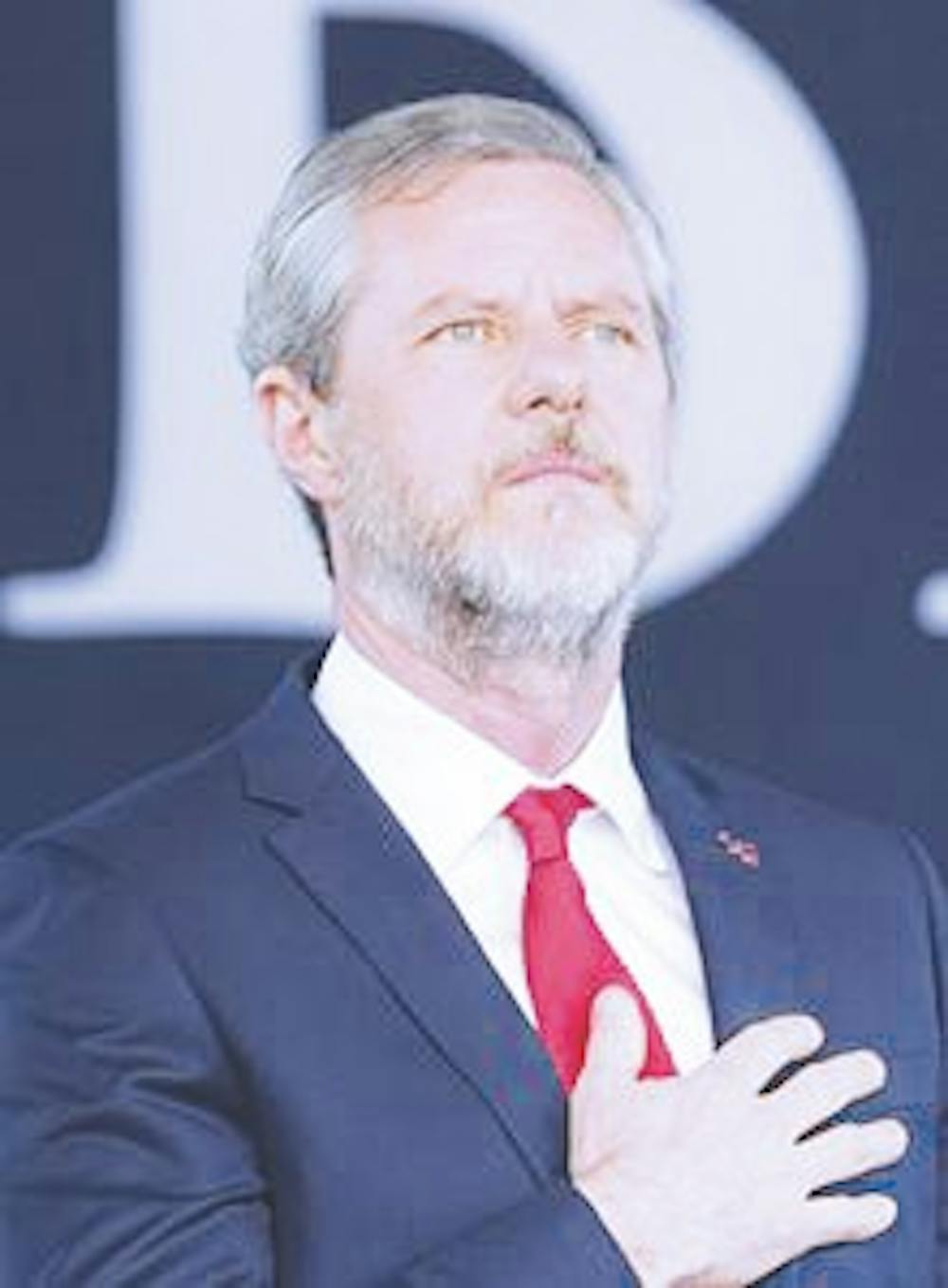Ethan Rice | Echo
"Is there anything President Trump could do that would endanger that support from you or other evangelical leaders?"
"No."
This one word from Jerry Falwell Jr. rang out like clanging cymbals declaring what political observers had been noting for years: that the "Religious Right," a voting bloc made up of middle class, mostly white Evangelicals that rose to prominence powering Ronald Reagan to the White House in the 1980's, has experienced a shift in belief on how a politician's moral character impacts a politician's ability to lead.
The exchange was part of a Washington Post interview with Falwell, president of Liberty University and one of the nation's foremost evangelical figures, in which he was challenged to justify his continued support of President Donald Trump despite his amoral behavior.
Falwell rooted his defense in a worldview which separates the so-called "earthly and heavenly kingdoms," arguing that religious morals cannot be applied to politics and that Jesus did not intend to tell governments what to do.
"You don't choose a president based on how good they are," Falwell said. "You choose a president based on what their policies are."
This marks a drastic shift in national thinking from twenty years ago, during the impeachment proceedings of President Bill Clinton. A study from the Public Religion Research Institute found in 2011 that, 60 percent of white evangelicals believed immoral personal actions impacted a public servant's professional role. By 2018, that number dropped to 16.5 percent.
This is a deeply concerning trend, and one that holds particularly relevant for Taylor University. The nationwide coverage of our conflict over Vice President Mike Pence has drawn the attention of Franklin Graham to anonymous commenters on social media in response to this challenge to the culturally accepted stigma that an "evangelical Christian school" must support the Trump administration.
Jakob Miller, assistant professor of American politics, identifies that the worldview described by Falwell falls in line with "Christian Realism," most well-known as described by Reinhold Niebuhr. This brand of political theology maintains that morality can only apply on an individual level and that groups such as political bodies cannot be bound by such restrictions.
Associate Professor of Philosophy Brad Seeman identified a second political thinker who presented such a concept, John Rawls, who argued that political decisions should be made behind a "veil of ignorance" devoid of affiliation by identity or role. Seeman questions how such a thin notion of self could make any decisions at all.
Seeman cites verses such as Colossians 1:16, which declares that all things, including "thrones or powers or rulers and authorities" were created by and for God. He maintains that an approach such as Falwell's takes the reality of creation and God's desire to reconcile it back to himself too lightly.
Any willingness to abandon moral standards in the name of political gain should raise cause for concern among anyone convicted by the mission of reconciliation in creation. Even more so when it is claimed by those seeking to establish laws based in their religious views while insisting that the central tenants of that same religion should not apply to those implementing the laws.
As we attempt to navigate issues regarding political alignment and the impact of government policies on the members of our Taylor family, it is first vital for us to address the importance of what should be common ground: when we choose who to lead, we should not be checking our faith at the door.





